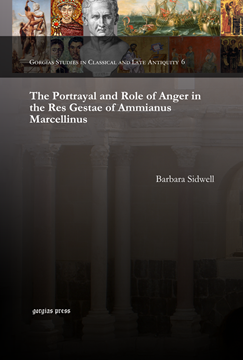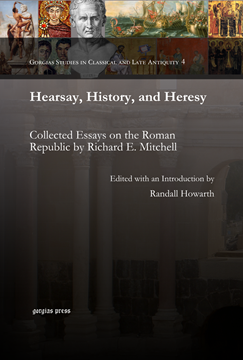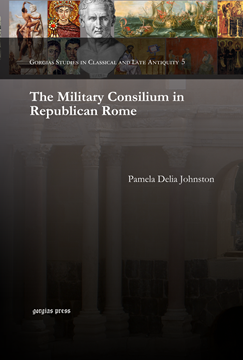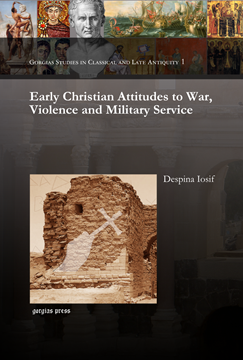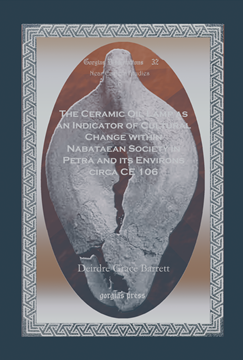Gorgias Studies in Classical and Late Antiquity
The Gorgias Classical & Late Antiquity series publishes monographs, edited volumes and translations on the Greco-Roman world and its transition into Late Antiquity, encompassing political and social structures, knowledge and educational ideals, art, architecture and literature. For more information about the series or to submit a proposal, please contact submissions@gorgiaspress.com.
Series Editorial Board
Johannes Niehoff-Panagiotidis (Chair) Freie Universität Berlin
Ulrike-Rebekka Nieten, Freie Universität Berlin
Adrian Pirtea, University of Vienna
Irene Schneider, University of Göttingen
Manolis Ulbricht, University of Göttingen
Series Advisory Board
Nicola Denzey Lewis, Claremount Graduate University
Stefan Esders, Freie Universität Berlin
Thomas Figueira, Rutgers University
Christian Freigang, Freie Universität Berlin
David Hernandez de la Fuente, Universidad Nacional de Educación a Distancia
Markham J. Geller, University College London
Susan Ashbrook Harvey, Brown University
AnneMarie Luijendijk, Princeton University
Roberta Mazza, University of Manchester
Arietta Papaconstantinou, University of Reading
Meron-Martin Piotrkowski, Hebrew University of Jerusalem
Shabo Talay, Freie Universität Berlin

